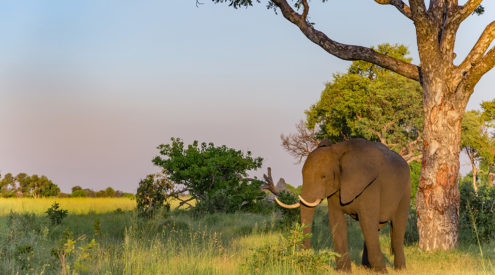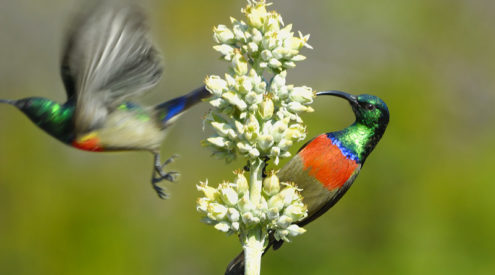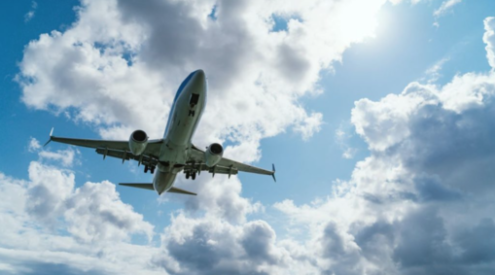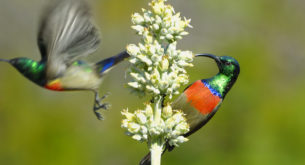Alex van den Heever, Wits School of Governance’s Professor and Chair in the field of Social Security Systems Administration and Management Studies said: ‘There is no reason why Tourism poses a greater risk than any other sector by being open.’
In his view, South Africa is shooting itself in the foot by keeping Tourism closed as there is ‘no public health reason to do so’.
Off the back of GDP Q2 results that paint a stark picture of the state of the economy, South Africa can ill afford to cripple an industry that is widely touted as having the greatest potential to reignite South Africa’s beleaguered economy.

Professor van den Heever feels that the tourism sector poses no greater risk than any other sector opening.
According to PWC’s Public and Private Growth Initiative (PPGI) Report (2019), tourism is the number one industry in South Africa with the greatest potential to stimulate inclusive economic growth and employment, creating the greatest multiplier effect – in terms of jobs, growth and export potential.
Yet, despite medical experts saying the industry is low risk enough for borders to reopen due to the sector’s stringent health and hygiene safety protocols adopted, South Africa remains firmly shut for the foreseeable future with a stringent visa regime and quarantine requirement under the National Disaster Act that would severely constrain demand for inbound international tourism even if borders were to reopen tomorrow.
It is worth noting that the tourism sector is far better able to manage the risk of the pandemic now than it was in March 2020.
Besides being able to reopen safely, South Africa must as far as possible avoid the requirement of a quarantine period, explains Professor van den Heever.
‘It is imperative that safe alternatives to quarantine approaches also be considered. Careful consideration needs to be given to developing such an approach as it will remove a considerable barrier to international travel. Workable options can be developed in conjunction with infectious disease specialists and institutionalised into health protocols.
‘South Africa already has community infections and therefore needs to manage the risk to the general community and the traveller in an environment in which the disease is already present.’
This is unlike the situation of countries such as New Zealand and South Korea which have focused their strategies on disease elimination.
For South Africa and Europe this horse has long bolted.
‘In the South African context, if an infected person comes to our country, it would be much the same as if someone from Benoni travelled to Johannesburg.
‘Almost every area in South Africa was seeded, so we will only see a bubbling up of the virus if we back off from being careful and expose communities to super spreading events. So we need to be cautious and adhere to health protocols until there is a safe and effective vaccine.
‘The questions we should be asking are, how we should manage the risk of living with the virus, and how can we best mitigate the consequences of people being positive in different contexts.
‘We can’t just shut everything down. The main issue is preventing super spreading by being careful and attentive to any instances where protocols need to be updated or where protocol adherence is a problem’ explains Professor van den Heever.
With the prospect of a vaccine being many months away and recognition from the medical fraternity that our strategy needs remain focused on prevention and the management of risk, health and hygiene protocols become more than the currency of trust amongst travellers. They become the key to reopening South Africa’s borders safely.
According to Professor van den Heever, if good protocols are adhered to, South Africa should be able manage the risks posed by COVID positive travellers as well as those situations where travellers can be infected within South Africa’s borders.
Much of South Africa is already in this position – with open businesses subject to health protocols. It is therefore unclear what additional risks are posed by international travel that are not already present and managed locally.
South Africa’s Tourism sector has adopted stringent protocols through the Tourism Business Council of South Africa’s (TBCSA) Travel Safe – Eat Safe programme, which has been informed by all international and local health and safety guidelines, including World Health Organization (WHO), National Institute for Communicable Disease (NICD), and Department of Health (DoH), reviewed by an epidemiologist and endorsed by the World Travel and Tourism Council (WTTC).
TBCSA CEO Tshifhiwa Tshivhengwa said: ‘We are confident South Africa’s tourism economy can be opened up safely if we follow global best practice and the comprehensive protocols we have developed. Travelling is as safe as going to the supermarket and many other things we do every day.’
Image credit: Unsplash

















